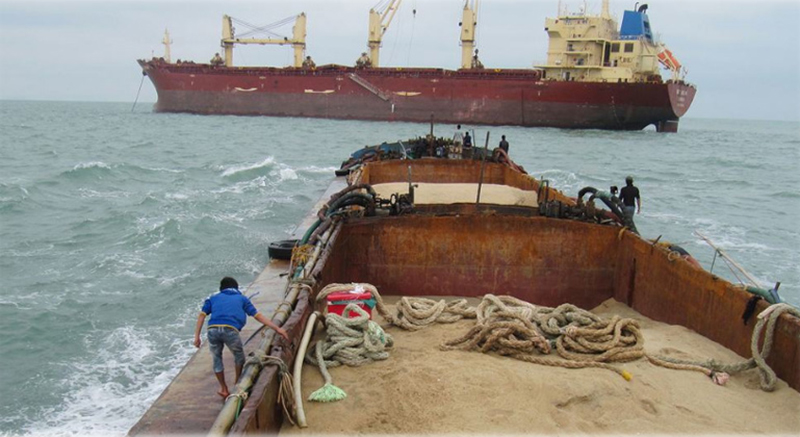 Sea Life
Sea Life
Coasts and sea life facing major threat due to massive sand removal
New York: Startling findings from a new UN data platform reveal that the marine dredging industry is extracting a staggering six billion tons of sand and sediment annually.
This is equivalent to over one million dump trucks every day – placing immense pressure on marine biodiversity and the well-being of coastal communities.
Marine Sand Watch, a platform developed by UN Environment Programme (UNEP)’s analytical centre, GRID-Geneva, uses artificial intelligence and automatic signals from ships to track and monitor sand, clay, silt, gravel, and rock extraction in the world’s marine environments.
It delivers crucial information on sand extraction zones (sand concessions), capital and maintenance dredging sites, sand trading hubs, vessel counts, and operators at sea.
While the platform is a groundbreaking tool, it currently cannot detect artisanal and small-scale mining along shallow coastlines, despite its intensity in some regions, according to UNEP.
Sand, a strategic material
“The scale of environmental impacts of shallow sea mining activities and dredging is alarming, including biodiversity, water turbidity, and noise impacts on marine mammals,” said Pascal Peduzzi, Director of GRID-Geneva at UNEP.
“This data signals the urgent need for better management of marine sand resources and to reduce the impacts of shallow sea mining,” he added.
The senior UN official called on governments as well as the dredging sector to treat sand as a strategic material, and swiftly engage in talks on how to improve dredging standards worldwide.
Alarming impacts
Between four and eight billion tons of sediment are dredged annually from marine and coastal environments.
This is “perilously” close to the natural replenishment rate of 10 to 16 billion tons per year necessary to sustain coastal and marine ecosystems, according to UNEP.
While shallow sea mining for sand and gravel is vital for various construction projects, they pose a major threat to coastal communities facing rising sea levels and storms.
Sand extraction also endangers coastal and seabed ecosystems, impacting marine biodiversity, nutrients from the sea and noise pollution, as well as impacting aquifer salinization and future tourism development, UNEP added.
Recommendations
International practices and regulations vary widely, UNEP noted, with countries such as Indonesia, Thailand, Malaysia, Vietnam, and Cambodia having banned marine sand exports in the last two decades, while others lack any legislation or effective monitoring programs.
The UN agency’s 2022 Sand and Sustainability report also called for enhanced monitoring of sand extraction and use, and recommended ending sand extraction from beaches and active beach-nearshore sand systems for mining purposes.
It also calls for new international standards governing marine sand extraction.
Support Our Journalism
We cannot do without you.. your contribution supports unbiased journalism
IBNS is not driven by any ism- not wokeism, not racism, not skewed secularism, not hyper right-wing or left liberal ideals, nor by any hardline religious beliefs or hyper nationalism. We want to serve you good old objective news, as they are. We do not judge or preach. We let people decide for themselves. We only try to present factual and well-sourced news.







